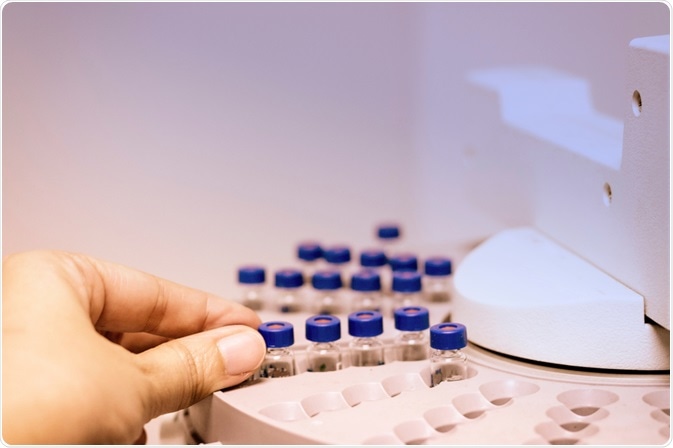Electrochemical mass spectrometry (EC-MS) is a powerful and versatile technique used to induce and analyze a wide range of electrochemical processes and biological reactions.
 Ropisme | Shutterstock
Ropisme | Shutterstock
Electrochemistry involves the study of electron movement during an oxidation−reduction reaction and is applied to generate an oxidative metabolic fingerprint of a molecule.
Measuring the concentration of proteins and other substances
Researchers using electrochemistry to measure the charge, potential or current of a substance to ascertain its concentration. Within the electrochemical cell, they can cleave proteins or peptides, reduce disulphide bonds, and covalently bind drugs with proteins.
Mass spectrometry can then be applied to deliver sensitive and selective detection for additional and unambiguous characterization of all products that are formed in the cell. The EC cell, which is typically coupled with electrospray ionization (ESI), is used to improve the sensitivity and specificity of MS to identify the products of an electrochemical reaction.
Redox reactions and electrochemistry
Electrochemistry is used to compliment other assays to characterize the direct and indirect impact of redox reactions on biological molecules, including proteins, peptides, as well as smaller biomolecules, such as nucleic acids.
Electrochemistry is especially useful to generate the oxidative products and reactive intermediates that can be captured by various electrophilic and nucleophilic reagents. Furthermore, the setting of experimental conditions, such as pH, electrochemical potential and the electrode material can be tightly controlled. The approach does not require the use of expensive enzymes or abrasive chemicals.
Redox reactions and mass spectrometry
Redox reactions can generate complex mixtures of products and intermediates that can be analysed using various techniques. However, mass spectrometry is a particularly popular technique for this purpose, as it provides not only quantitative data, but also qualitative data to elucidate structure. Furthermore, coupling EC with electrospray ionization (ESI) enables MS to characterize a wide range of different-sized compounds, from small biomolecules to large polymers.
EC-MS in metabolomics
The EC-MS technique is a particularly popular and important application in the field of life to study drug metabolism and proteomics. Its ability to mimic drug metabolism is particularly relevant in proteomics and biomarker discovery.
Although EC-MS cannot identify or predict all products generated as a result of oxidative reactions, its value as a complementary tool makes it an essential platform in screening oxidization products for their bioaffinity or investigating the protein or peptide adduct within a xenobiotic to assess its allergenic potential.
Applications in neurology
MS coupled with ionization methods, such as ESI is a popular application in neuroscience. Neurotransmitters, such as acetylcholine and its inhibitors, can be monitored at high-speed and with the selectivity and resolution required for complex mixtures.
MS monitoring of acetylcholine can provide valuable information about a range of brain functions, such as memory, addiction, movement and cognition.
It can also be used to assess the role of dysregulated acetylcholine in conditions, such as Parkinson’s disease, Alzheimer’s disease, and schizophrenia. Live animal studies that monitor acetylcholine levels in the brain can help researchers understand more about neurotransmission in both healthy and disease states.
Further Reading